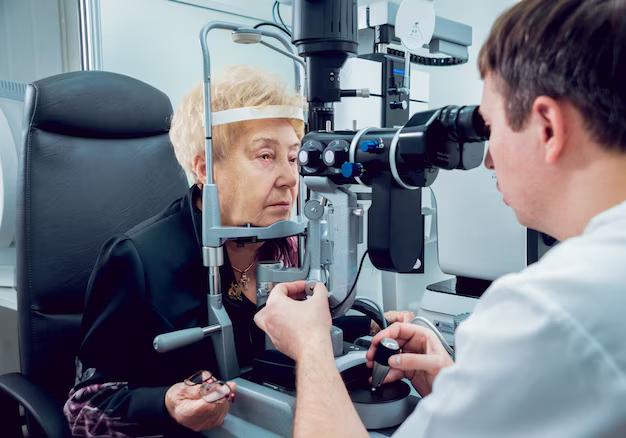Your Guide to Does Medicare Cover Cataracts
What You Get:
Free Guide
Free, helpful information about Cataract FAQ and related Does Medicare Cover Cataracts topics.
Helpful Information
Get clear and easy-to-understand details about Does Medicare Cover Cataracts topics and resources.
Personalized Offers
Answer a few optional questions to receive offers or information related to Cataract FAQ. The survey is optional and not required to access your free guide.
Navigating Medicare Coverage for Cataract Surgery: What You Need to Know
Cataracts are a common and often frustrating part of aging, clouding vision and impeding daily activities. If you're one of the many individuals facing cataract surgery, understanding how this procedure is covered by Medicare is crucial. Here, we delve into the ins and outs of Medicare coverage for cataracts, providing a comprehensive guide to help you navigate your options with confidence.
What is Cataract Surgery?
Cataract surgery is a procedure to remove the lens of your eye, which has become cloudy due to cataracts, and often replace it with an artificial lens. This surgery is one of the most commonly performed procedures, known for its high success rate in restoring clear vision.
Types of Cataract Surgery
- Phacoemulsification: The most common method, where ultrasonic waves break up the cloudy lens for removal.
- Extracapsular Surgery: Involves a larger incision to remove the cloudy core of the lens.
- Laser-Assisted Surgery: Utilizes advanced laser technology for more precision.
Does Medicare Cover Cataract Surgery?
For those enrolled in Medicare, understanding the extent of coverage for cataract surgery can alleviate financial concerns and assist in planning ahead.
What Parts of Medicare Cover Cataract Surgery?
Medicare's coverage for cataract surgery typically falls under Medicare Part B, which covers outpatient procedures:
- Medicare Part B: Covers traditional cataract surgery including the cost of the artificial lens and standard surgical procedures. It also includes coverage for pre-surgery and post-surgery doctor visits.
- Medicare Part A: Only applies if you're admitted as an inpatient due to complications.
- Medicare Advantage Plans: These cover everything Original Medicare covers but may offer additional benefits, including vision-related perks.
What Costs Are Involved?
Medicare generally covers 80% of the approved amount for cataract surgery once your annual deductible is met. You are responsible for the remaining **20%*, along with any additional costs for premium lenses or elective advancements.
What's Not Covered?
While Medicare Part B does cover basic procedures and standard lenses, it doesn't typically cover:
- Premium Intraocular Lenses (IOLs): Such as multifocal lenses or those that correct astigmatism.
- Vision Correction Surgeries: Procedures intended to reduce reliance on glasses, like LASIK.
Navigating Cataract Surgery with Medicare
Understanding Medicare's role in cataract surgery is important for making informed decisions about your health care.
Steps to Take Pre-Surgery
- Consult Your Doctor: Determine the necessity and urgency of cataract surgery.
- Check Your Coverage: Verify specifics with your Medicare plan.
- Discuss Costs: Talk to your provider about what is covered and any out-of-pocket expenses.
After Surgery: What to Expect
- Follow-Up Visits: Medicare covers follow-up visits to monitor recovery.
- Prescription Eyewear: After surgery, Medicare will help cover one pair of glasses or contacts under certain conditions if needed for vision correction.
- Recovery: Most individuals recover quickly and experience improved vision soon after.
Practical Tips for Navigating Medicare Coverage
Here are key tips to help you manage cataract surgery and the associated costs:
- 🌟 Verify Supplement Plans: Consider plan options and supplements that meet additional needs.
- 📝 Keep Detailed Records: Document all interactions with healthcare providers for clarity and future reference.
- 📞 Utilize Medicare Contacts: Call and consult with Medicare's helpline to answer any outstanding questions.
Key Takeaways for Cataract Surgery and Medicare Coverage
🧐 Summary Table on Cataract & Medicare
| Aspect | Medicare Part B Coverage | Out-of-Pocket Considerations |
|---|---|---|
| Surgery Type | Covers standard surgery | Premium surgeries not covered |
| Cost Coverage | 80% after deductible | 20% patient responsibility |
| Extra Lenses | Standard lenses only | Premium lenses additional |
| Follow-Up Care | Yes | Additional visits may incur |
| Vision Correction | Basic glasses/contacts | LASIK not included |
Navigating Medicare coverage for cataract surgery doesn't need to be daunting. With a clear understanding of Medicare's coverage scope and a proactive approach to your healthcare management, you can ensure your cataract surgery proceeds smoothly and efficiently, enhancing your quality of life post-operation.
What You Get:
Free Cataract FAQ Guide
Free, helpful information about Does Medicare Cover Cataracts and related resources.

Helpful Information
Get clear, easy-to-understand details about Does Medicare Cover Cataracts topics.

Optional Personalized Offers
Answer a few optional questions to see offers or information related to Cataract FAQ. Participation is not required to get your free guide.


